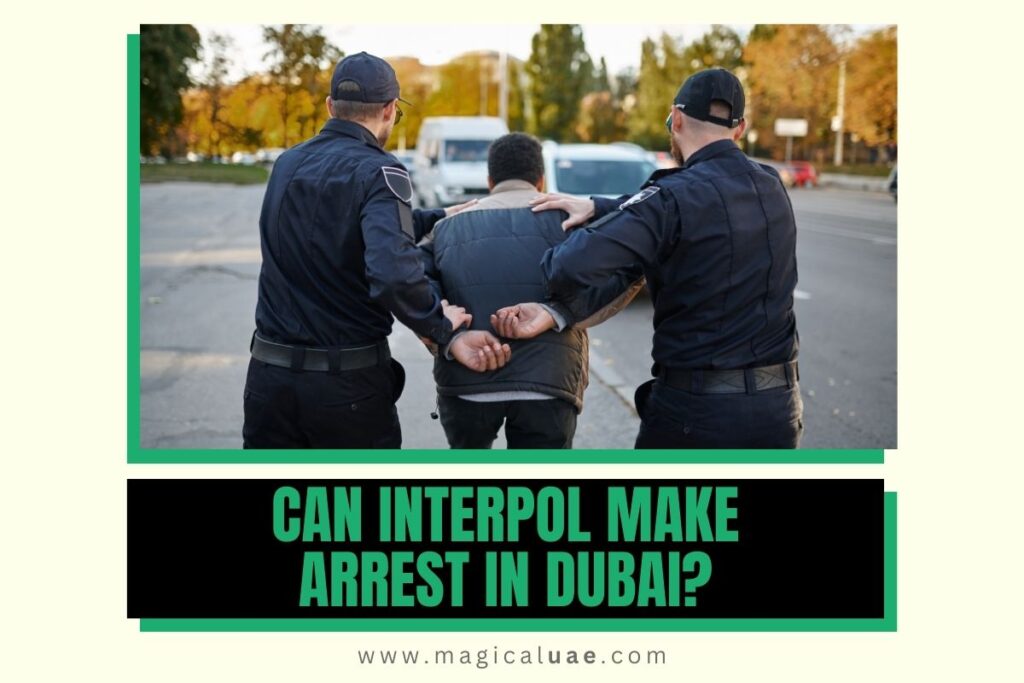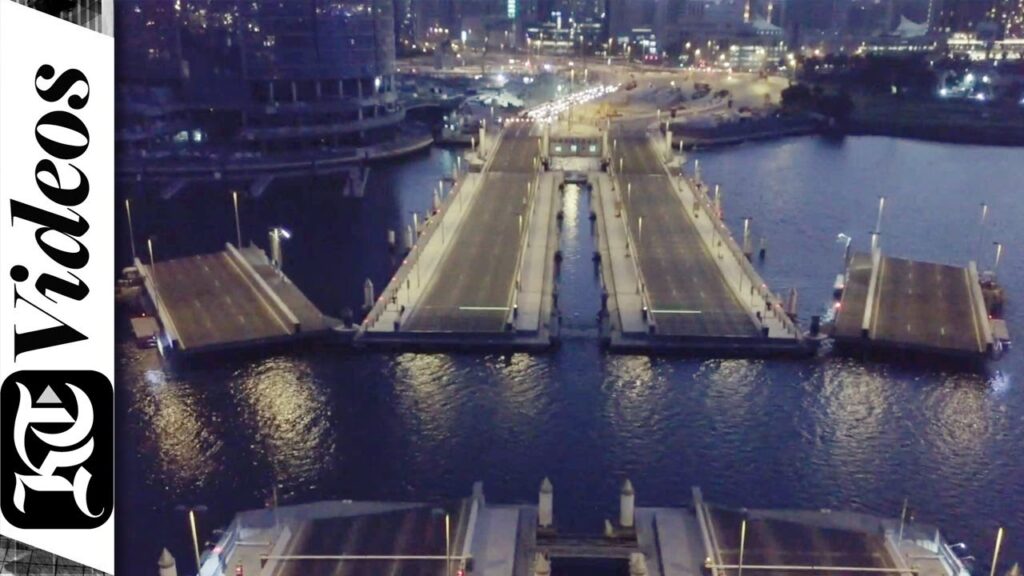Interpol can make arrests in Dubai under certain circumstances. In Dubai, Interpol has the authority to arrest individuals with a Red Notice issued against them, which is an international arrest warrant.
However, the execution of the arrest depends on the cooperation and willingness of local authorities in Dubai. Interpol serves as an international police organization that assists member countries in locating and apprehending wanted individuals globally. In Dubai, which is a member of Interpol, the organization’s efforts can result in arrest, but it ultimately depends on the cooperation of the local law enforcement agencies.
In this blog post, we will discuss the question “Can Interpol Make Arrest in Dubai?”. We will explore the role of Interpol in international arrests and Dubai’s cooperation with Interpol.
Interpol’s Role In International Arrests
Interpol plays a critical role in facilitating international law enforcement cooperation and aiding in the arrest of fugitives across borders. With a network of 194 member countries, Interpol serves as a platform for countries to exchange information and collaborate on cross-border criminal investigations.
When it comes to arresting individuals in foreign countries like Dubai, Interpol acts as a crucial intermediary. Interpol does not have the authority to make arrests directly. Instead, it issues Red Notices, which are international wanted persons alerts used to assist member countries in locating and arresting individuals sought for extradition or to serve a sentence.
Red Notices:
| Key Points about Red Notices: |
|---|
|
Dubai’s Cooperation With Interpol
Dubai has been a proactive member of Interpol, actively cooperating to execute arrests and combat international crime. As a global financial and business hub, Dubai recognizes the importance of maintaining law and order, both within its borders and internationally.
Dubai’s law enforcement agencies work closely with Interpol to implement Red Notices and facilitate the arrest of wanted individuals. The United Arab Emirates (UAE), of which Dubai is a part, has a strong legal framework in place to support international cooperation in criminal matters.
In accordance with this framework, Dubai’s law enforcement agencies rely on Interpol’s alerts and requests for assistance to apprehend fugitives and ensure their extradition to the requesting countries. This cooperation serves as a deterrent to international criminals seeking refuge in Dubai and demonstrates the commitment of the UAE to combating transnational crime.
While Interpol cannot make arrests in Dubai directly, its role as an international law enforcement cooperation platform and the cooperation of Dubai’s law enforcement agencies with Interpol are crucial in facilitating the arrest of wanted individuals and ensuring international criminals are brought to justice.

The Process Of Issuing An Interpol Red Notice
Interpol can issue a Red Notice, but the organization does not have the authority to make arrests. However, if an individual is located in Dubai and subject to an Interpol Red Notice, the local authorities may arrest them based on the notice.
The Process of Issuing an Interpol Red Notice Interpol plays a crucial role in international law enforcement, facilitating cooperation among its member countries. One of the key tools it utilizes is the Interpol Red Notice. In this section, we will explore what an Interpol Red Notice is and the criteria for issuing one.
What is an Interpol Red Notice?
An Interpol Red Notice is essentially an international arrest warrant. It is not an arrest warrant itself, but rather a request to member countries to provisionally arrest individuals pending extradition. This notice is primarily issued by Interpol’s General Secretariat in Lyon, France, at the request of a member country.
Criteria for Issuing an Interpol Red Notice
Before an Interpol Red Notice is issued, certain criteria must be met. Interpol strictly follows its Constitution and Rules on the Processing of Data, ensuring that requests comply with relevant international law and human rights standards. Here are the key criteria that need to be satisfied:
1. Valid arrest warrant: The requesting member country must possess a valid arrest warrant that meets the requirements of their own national law.
2. Seriousness of the offense: The offense in question must be considered a serious crime in both the requesting and the requested member country. While Interpol defines the types of offenses that can be subject to a Red Notice, member countries have discretion in deciding which cases to request assistance for.
3. International nature: The offense must have a cross-border aspect, involving two or more member countries. Interpol’s role is to facilitate cooperation in transnational cases, and as such, Red Notices are not intended for domestic matters.
4. Availability of reliable information: The requesting member country needs to provide sufficient information to allow Interpol and other member countries to identify and locate the wanted individual. The information should include details such as the person’s identity, physical description, and alleged crimes.
Once these criteria are met, Interpol’s General Secretariat reviews the request to ensure compliance with its rules. If approved, the Red Notice is issued, disseminated to all member countries, and entered into Interpol’s databases, making it accessible to law enforcement agencies worldwide.
It is important to note that while an Interpol Red Notice is a powerful law enforcement tool, it does not constitute a global arrest warrant. Member countries have the final decision on whether to detain and extradite an individual based on their national laws and bilateral agreements.
The process of issuing an Interpol Red Notice involves strict adherence to criteria regarding the validity of arrest warrants, seriousness of offenses, international nature of the crimes, and availability of reliable information. By following this process, Interpol works to enhance global cooperation in combating crime and ensuring the safety of nations around the world.
Challenges And Limitations Of Interpol Arrests In Dubai
The challenges and limitations of Interpol arrests in Dubai are numerous, with a range of factors that can complicate the process and hinder the effectiveness of international arrest warrants.
It is essential to understand these challenges and limitations to fully grasp the complexities involved in apprehending fugitives through Interpol in Dubai. This article will explore two key areas where challenges may arise: jurisdictional hurdles and Dubai’s extradition laws.
Jurisdictional Challenges
When it comes to Interpol arrests in Dubai, one of the primary challenges is the issue of jurisdiction. Dubai is a member of Interpol, which means it is committed to cooperating with other member countries in capturing international criminals. However, jurisdictional challenges can arise due to the unique legal system and cultural context of Dubai.
For instance, extradition requests may face obstacles if the crime in question is deemed political or religious in nature, as these are typically seen as within the purview of local authorities. Furthermore, the principle of dual criminality applies, meaning that the offense for which an individual is being sought must be a crime in both the requesting and the requested countries.
| Jurisdictional Challenges | Description |
|---|---|
| Unique Legal System | Dubai’s legal framework differs from many Western countries, which can complicate the extradition process. |
| Political or Religious Crimes | If the crime is considered political or religious, extradition requests may face additional scrutiny or rejection. |
| Dual Criminality | Dual criminality requires the offense to be recognized as a crime in both the requesting and the requested countries. |
Dubai’s Extradition Laws
Dubai’s extradition laws also present challenges and limitations when it comes to Interpol arrests. The legal framework surrounding extradition is essential to consider as it provides guidelines for how the process should be executed.
One key factor is that Dubai does not have a comprehensive extradition treaty with all countries. Instead, extradition is typically governed by bilateral agreements or specific arrangements on a case-by-case basis. This lack of uniformity can delay or complicate the process of seeking extradition through Interpol.
Another limitation is that Dubai, like many other countries, may refuse to extradite individuals if they face the death penalty in the requesting country. This stance is rooted in Dubai’s commitment to uphold human rights standards.
- Limited Extradition Treaties
- Bilateral Agreements
- Case-by-Case Arrangements
- Extradition and the Death Penalty
Considering these jurisdictional challenges and Dubai’s extradition laws, it is vital to approach Interpol arrests in Dubai with an understanding of the potential hurdles that may arise. While Interpol provides a platform for international cooperation, the complexities of these challenges can impact the effectiveness of arrest warrants, requiring careful navigation of legal frameworks and cooperation between countries.

High-profile Arrests Made By Interpol In Dubai
Interpol has successfully executed high-profile arrests in Dubai, showcasing its global reach and effectiveness in law enforcement. The international organization demonstrates its capability to make arrests and bring criminals to justice regardless of their location.
Famous Cases Of Interpol-led Arrests In Dubai
Over the years, Interpol, the international law enforcement organization, has played a significant role in making high-profile arrests in Dubai.
Utilizing their global network and cooperation with local authorities, Interpol has successfully apprehended individuals involved in various crimes, ranging from fraud to drug trafficking. Let’s take a closer look at some of the most famous cases led by Interpol in Dubai.
Success Rate Of Interpol Arrests
Interpol’s success rate in apprehending criminals in Dubai has been commendable. Their efficient coordination with local law enforcement agencies and intelligence sharing has yielded positive results, leading to the capture of many elusive individuals. The success of Interpol’s arrest warrants can be attributed to the following key factors:
1. Timely Action: Interpol’s swift response in issuing arrest warrants and coordinating with the Dubai authorities has minimized the chances of suspects evading capture.
2. Global Cooperation: Interpol’s extensive network of member countries facilitates international collaboration, enabling close coordination and intelligence sharing between countries involved in high-profile cases.
3. Advanced Technology: Interpol utilizes cutting-edge technology and tools to enhance their investigative capabilities. This includes utilizing data analytics, digital forensics, and biometric identification methods to track down fugitives.
4. Legal Framework: The establishment of legal frameworks and extradition agreements between countries has improved the enforcement of Interpol’s arrest warrants, creating a conducive environment for the successful capture and prosecution of wanted individuals.
5. Proactive Approach: Interpol’s proactive approach in monitoring and identifying emerging criminal trends, such as cybercrime and terrorism, has enabled them to make timely arrests and disrupt criminal networks operating in Dubai. Interpol’s high success rate in making arrests in Dubai has served as a deterrent to criminals and has showcased the effectiveness of international cooperation in combating transnational crime. The organization’s commitment to upholding global law and order continues to make a significant impact in ensuring justice is served.
Alternatives To Interpol For Arrests In Dubai
Looking for alternatives to Interpol for making arrests in Dubai? Discover the options beyond Interpol and find out if they can execute an arrest in Dubai efficiently. Explore the possibilities to ensure a smooth process.
Alternatives to Interpol for Arrests in Dubai In certain situations, Interpol may not be the primary option for making arrests in Dubai. Thankfully, there are alternatives that ensure the enforcement of justice and the apprehension of criminals. Two common alternatives to Interpol include Bilateral Cooperation between Countries and Mutual Legal Assistance Treaties (MLATs). Read on to explore these methods further and understand how they play a crucial role in arresting individuals in Dubai.
Bilateral Cooperation Between Countries
Bilateral Cooperation between Countries is a key approach that enables Dubai to make arrests independently. Rather than relying on international agencies, this method involves direct coordination between two nations. When one country seeks the arrest of an individual located in another country, both parties can exchange necessary information, provide assistance, and work collaboratively to ensure the successful apprehension of the suspect. One of the significant advantages of bilateral cooperation is its efficiency.
Rather than going through the bureaucratic processes associated with Interpol, countries can directly communicate, expediting the arrest procedure. This method minimizes delays and ensures a swift response to the matter at hand. It’s important to note that bilateral cooperation is established through specific agreements signed between nations.
These agreements provide a legal framework for sharing information, cooperation between law enforcement agencies, and facilitating the arrest of individuals wanted by the requesting nation. As a result, countries can effectively enforce justice and address cross-border crimes without solely relying on Interpol.
Mutual Legal Assistance Treaties (mlats)
Another alternative to Interpol for making arrests in Dubai involves Mutual Legal Assistance Treaties (MLATs). These treaties are formal agreements between countries that focus on cooperation in legal matters, including the exchange of information and assistance in criminal investigations. MLATs are designed to provide a legal framework for supporting each other by granting requests for information, gathering evidence, and facilitating arrests. Through MLATs, countries can navigate legal complexities and overcome jurisdictional issues that may arise during cross-border investigations.
Law enforcement agencies can request assistance from the targeted country’s authorities, which in turn can take necessary actions to arrest the individual and gather evidence as deemed appropriate within their legal boundaries. The advantage of MLATs lies in their comprehensive nature, allowing countries to effectively collaborate and share critical information while abiding by their respective legal systems. These treaties often specify the procedures and requirements for requests, ensuring transparency, accountability, and the protection of individuals’ rights.
While Interpol is an essential international organization that facilitates arrests across borders, it’s crucial to recognize the alternatives available for making arrests in Dubai. Bilateral Cooperation between Countries and Mutual Legal Assistance Treaties enable direct collaboration, streamlined communication, and efficient apprehension procedures, ensuring justice is upheld and criminals are brought to justice. With these alternatives in place, Dubai continues its commitment to global security and the enforcement of the rule of law.
Conclusion
To conclude, Interpol plays a crucial role in ensuring global security, including the power to arrest suspects in Dubai. With its extensive network and collaboration with various law enforcement agencies, Interpol has the capacity to effectively apprehend criminals worldwide. The organization’s commitment to international cooperation ultimately leads to a safer and more secure world for all.
Remember to check for Interpol’s latest updates and news for further information on arrests and ongoing investigations.



